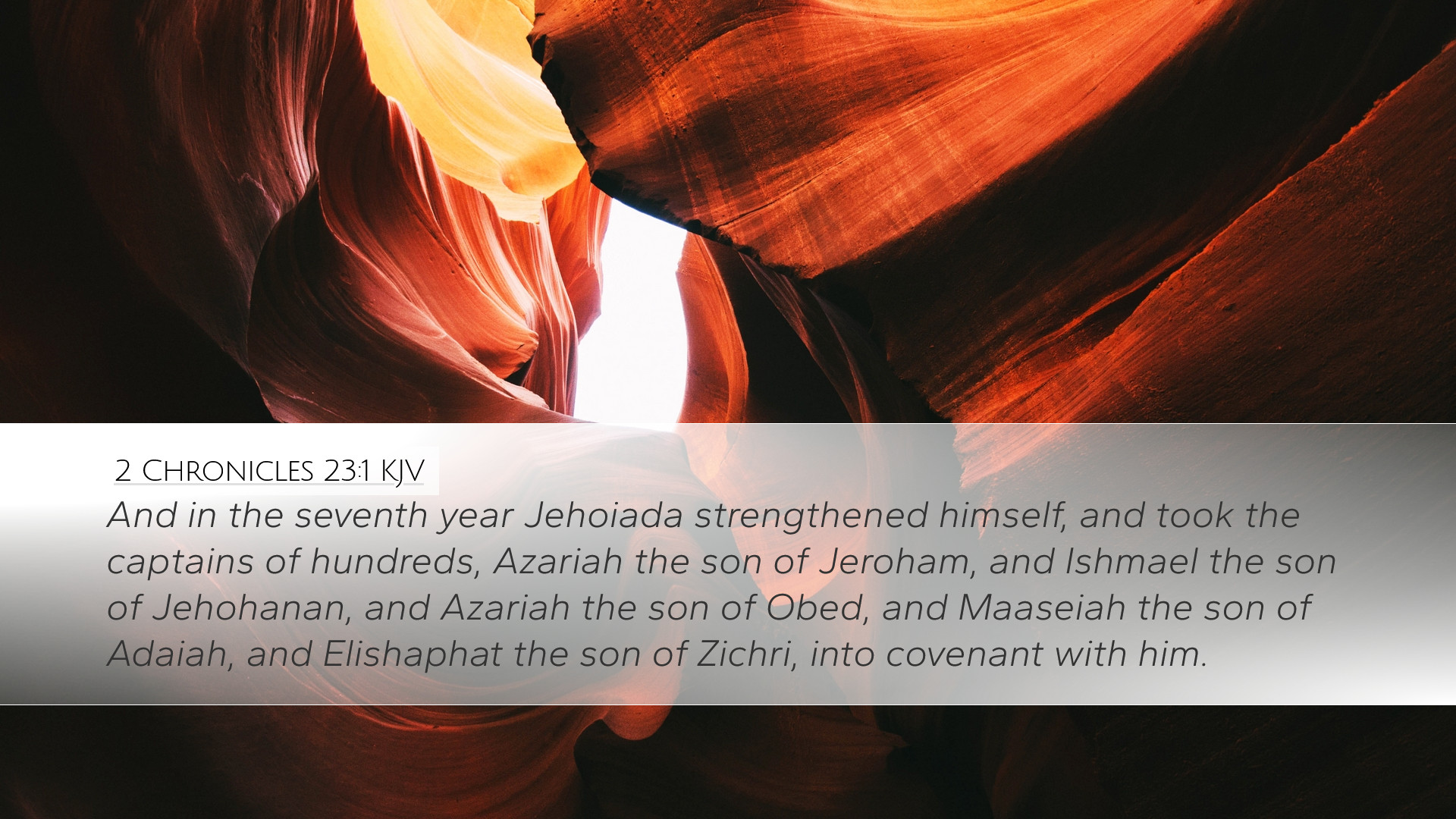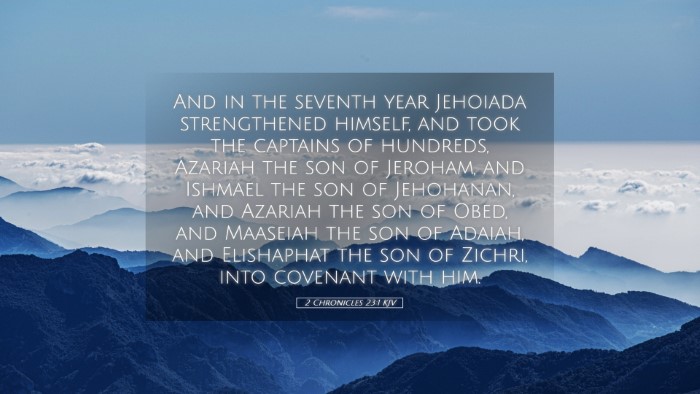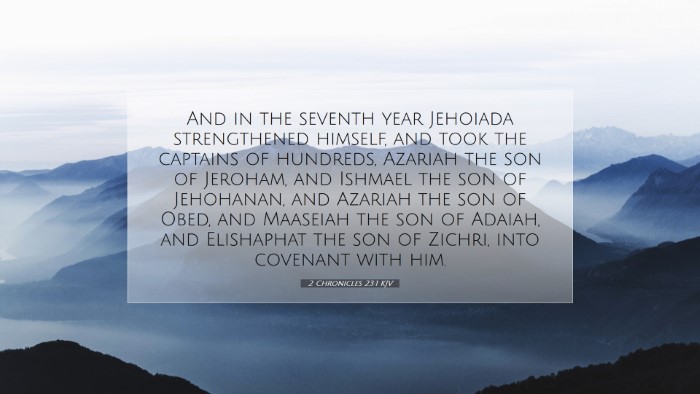Commentary on 2 Chronicles 23:1
Verse (2 Chronicles 23:1): "And in the seventh year Jehoiada strengthened himself and took the captains of hundreds, Azariah the son of Jehoiam, and Ishmael the son of Jehohanan, and Azariah the son of Obed, and Maaseiah the son of Adaiah, and Elishaphat the son of Zichri, into covenant with him."
Introduction
The passage in 2 Chronicles 23:1 marks a significant turning point in the history of Judah as it sets the stage for the restoration of true worship and the rightful monarchy. The context involves the reign of Athaliah, who usurped the throne and sought to eliminate the royal line of David.
Contextual Background
This event occurs in the seventh year of Athaliah's tyranny, emphasizing Jehoiada's decisive action to reclaim the kingdom for God’s chosen people. Athaliah’s reign represents a period of moral and spiritual decline, akin to periods documented throughout biblical history where idolatry and apostasy flourished.
Key Characters
- Jehoiada: The high priest, a significant figure in this narrative, exhibits both political acumen and spiritual leadership. He initiates the plan to overthrow Athaliah and restore the Davidic line.
- Athaliah: The tyrant queen represents evil and oppression, a stark contrast to the righteousness that Jehoiada seeks to restore.
- The Captains of Hundreds: These military leaders demonstrate the support of the army, crucial for any coup against an established ruler. Their commitment to Jehoiada signifies a collective desire to return to rightful worship and governance.
Theological Insights
Jehoiada’s Covenant: The act of forming a covenant among the captains highlights the importance of unity in purpose and mission. Jehoiada’s gathering of significant military leaders suggests that restoring God’s order was a collective, communal effort.
Divine Providence: This event illustrates God’s providential care in preserving the Davidic line. Jehoiada’s actions were not merely political; they were divinely orchestrated to maintain the covenantal promises made to David.
Commentary Insights
Matthew Henry
Matthew Henry notes that Jehoiada’s initiative was both wise and courageous, demonstrating a man of faith standing up against tyranny. He emphasizes the importance of divine timing—the seventh year marks a full period of trial and testing, where God’s plan is about to unfold dramatically. Henry stresses that God's people must be vigilant and prepared to act when the time is right, a recurring theme in biblical history.
Albert Barnes
Albert Barnes offers insights into the political and spiritual implications of Jehoiada's actions. He highlights the significance of leadership in society and the church, asserting that those in positions of authority must align their actions with God’s will. Barnes sees the convening of the captains as a parallel to the need for leaders today to resist oppressive regimes and stand for righteousness.
Adam Clarke
Adam Clarke focuses on the methodology of Jehoiada’s approach. He points out that Jehoiada’s coalition with military leaders exemplifies a strategic and non-violent opposition to tyranny. Clarke notes how this example sets a precedent for organizing efforts against injustice, emphasizing unity among people of faith in times of crisis.
Application for Modern Readers
The events captured in this verse call upon contemporary believers, leaders, and congregations to recognize their role in promoting righteousness in their communities. They are encouraged to form alliances for a common godly purpose.
- Spiritual Leadership: Just as Jehoiada took a stand, church leaders today must be pillars for ethical governance and spiritual integrity within their respective communities.
- Unity Among Believers: The formation of alliances for the sake of the Gospel echoes the necessity for believers to come together across denominational lines to combat societal injustices.
- Faith in Action: The passage reminds readers that faith is not passive; it requires action in the face of opposition and a commitment to God's mission.
Conclusion
The account in 2 Chronicles 23:1 regarding Jehoiada's preparations serves as a reminder of the importance of faithful leadership, the necessity of divine intervention in history, and the enduring call to unity among God's people. Believers are urged to emulate Jehoiada—standing firm in their faith and courageously confronting darkness with the light of truth.


